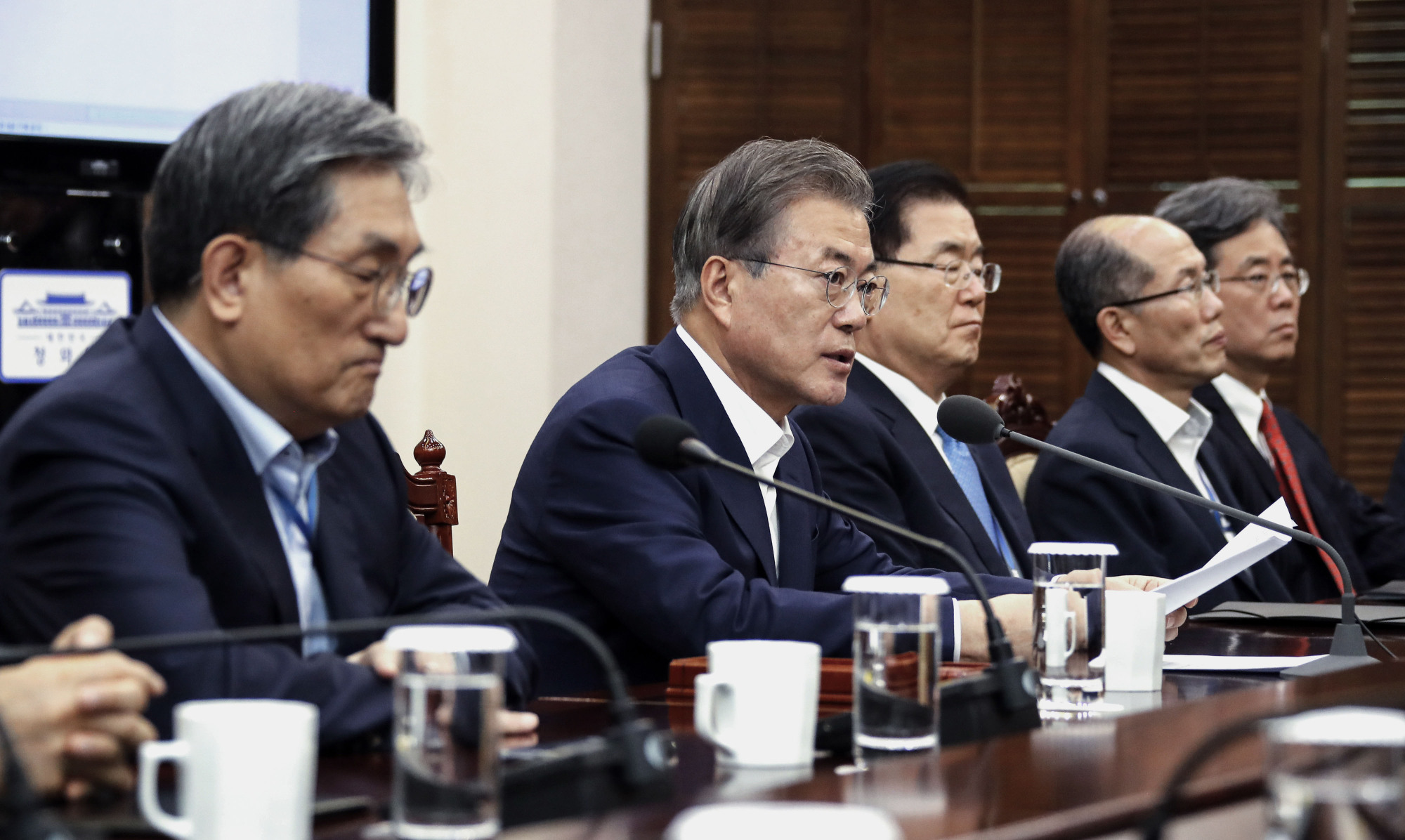Two junior directors from the South Korean trade ministry and their Japanese counterparts held an unusual six-hour meeting in Tokyo last Friday. It was a nightmare scenario for those who recall the security coordination between the United States, Japan and South Korea during the Cold War. Back then, the de facto tripartite hub-and-spoke alliance was solid and functional. Those four officials in charge of security-related export control may not be senior enough to remember the good old days of the 1980s.
For Tokyo, the measures announced July 1 were a well-crafted, World Trade Organization-consistent "silver bullet" that would hopefully put an end to the ongoing disputes with South Korea.
Optimistic Japanese officials, therefore, might have been startled to see a New York Times article on July 15 that said "Mr. Abe became the latest world leader to strike a blow against free trade, when he moved to limit South Korea's access to Japanese chemicals ... citing vague and unspecified concerns about national security."

















With your current subscription plan you can comment on stories. However, before writing your first comment, please create a display name in the Profile section of your subscriber account page.